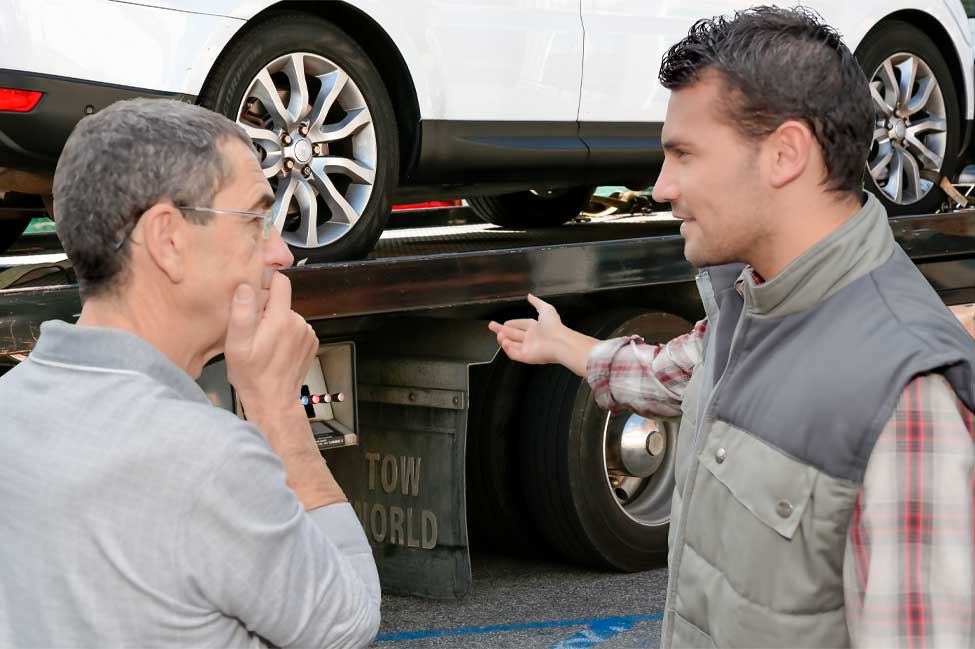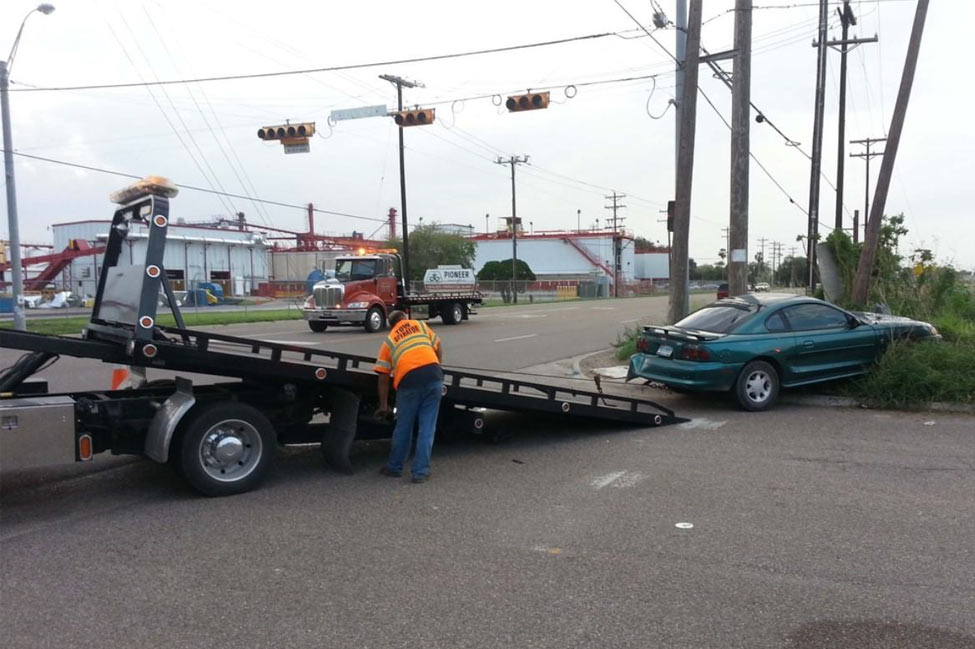How To Hire Tow Truck Operators.
When I started out as an employer, I was constantly on the lookout for employees who had the ability to understand the needs of my business. Rather than recruiting warm bodies who would simply do what was required of them while they were being watched, I wanted good people who could learn and grow with the business. I wanted people who would do what was required because it was the right thing to do.
And, because of this desire, during the interview process, I would detail the intricacies and challenges that come with the job. I would spell out exactly the type of trustworthy, loyal superstar I was looking for. And, to a man, each applicant, eager to please, would nod their head and say that they understood, intimating that I could stop my search because they were the right person for the job.
But after the training period was through and the new hire became assimilated into the company, many would fail to live up to my expectations.
They weren’t bad people. They were clocking in and clocking out, doing what they were supposed to do when I was around. But they weren’t the engaged superstars I was looking for.
Then one day, I hired Paul. And it didn’t take long after Paul came on board that I saw something in him I’d rarely seen. He caught on very quickly and had a good attitude. He was great with everyone – law enforcement, customers, dispatchers, and even the other drivers.
Paul was interested in the business, and he looked for ways to help the company make more money.
Paul asked questions the other employees never asked. He wanted to know how the company could profit from responding to accidents if the vehicle owner failed to pick up their car. When I told him that we sold those cars for scrap, he then offered to work on some of the better cars so we could sell them for more money.
Over time, I began to trust Paul more and more, and as he quickly moved up in the ranks, we became friends.
As he earned more money and authority in my company, I began to expect more from him. It was a very good working relationship, I thought, and soon, he became my Go-To-Guy for a lot of things. I even created a new position for him in the company, promoting him to Shop Foreman.
On many occasions, Paul and I would talk about the business in depth, about the competition, challenges with motor clubs, customer complaints, and a whole litany of other issues. And due to these detailed discussions, a shift in my thinking occurred. I began to see Paul differently. I believed he cared as much about MY business as I did.
Then one day, Paul called in sick. I was already short two men that morning due to after-hours calls the night before. So it was a long and rough day. But eventually, all the work was completed, and we made it through.
When Paul came in the next day, I immediately started talking shop. I told him how backed up we were and that we really needed his help but that I understood he was out sick. But there was something off with him.
Rather than rolling his sleeves up and eagerly digging into the tasks at hand, Paul now seemed distant and withdrawn. When I asked him what was wrong, he refused to talk about it.
Over the next two weeks, Paul missed three more days, and his attitude never improved. And even though I made many attempts to get him to talk, nothing was getting any better.
Then, Monday of the following week, Paul walked into my office and gave his two-week notice.
He was quitting.
When I asked him why– he told me that I was asking too much of him and that he didn’t want all the added responsibility.
I told him that I thought he wanted the responsibility and authority. He was doing such a great job and deserved the promotion.
That’s when Paul said something that took me by surprise. He said, “I was hired for the job of tow truck operator, but I feel like I should have ownership in the business. It’s like you and I are business partners, but we’re not.”
His comments took me off guard. I didn’t know what to say. I stood there speechless as he turned and left my office.
Eventually, Paul left the company.
Months later, after replaying what had happened with Paul over and over in my head, I finally concluded that he was right. I did expect him to care as much about my business as I did. And it wasn’t fair.
Only someone who takes the risks required to start a business should possess the same level of caring and responsibility as the owner. And, since Paul’s investment was simply showing up and caring about his job for a few months – and not my investment of more than 15 years and hundreds of thousands of dollars into the business, why should he be expected to care as much as me?
Learning How To Hire Tow Truck Operators The Hard Way
The ordeal with Paul was quite an eye-opening experience and one that taught me that, instead of looking for superstars and befriending employees, I should focus on creating defined positions with job-specific duties…and hiring for those positions. And that focusing on filling positions rather than finding superstars would allow me to develop certain performance standards and be able to determine how each employee measures up over time.
But the biggest benefit of all is my new process of hiring would allow me to avoid becoming dependent on any single employee. So, here’s what I did.
I took the time to figure out exactly what I was looking for in a tow truck operator and came up with this list of traits.
- Great Attitude– I want a person who has a positive, can-do attitude.
- Focus– Someone who can separate work from home life and doesn’t require “Mental Health Days Off” or any other such nonsense.
- Punctuality— I want someone who is always on time (Of course, being late due to after-hours work is an exception).
- Absences— I want someone who, short of death or dismemberment, always shows up ready to work.
- Participation in Training— I want someone willing to continue learning and who loves to learn new things.
- Customer Reviews— I want someone worthy of reviews and willing to ask for them.
- Productivity— I want someone who is highly productive, getting one job done after another.
- Motivated— I want someone eager to jump in the truck when needed, regardless of if it’s almost quitting time.
- Damages— I want someone who is detail-oriented and avoids damaging my trucks and customers’ property.
- Appearance— I want someone who takes pride in their appearance, pants pulled up, shirt tucked in, and tattoos hidden.
- Truck Clean— I want someone who keeps their truck clean inside and out and doesn’t leave trash in my trucks.
- Participate in Monthly Meetings— I want someone who is a team player willing to share their experiences and doesn’t care who gets the credit.
I then created a job listing based on these traits. And during each interview, I would discuss what was required and mention that if the applicant were brought on board, regular performance reviews would be conducted, and we would discuss each of these traits during the reviews.
Using this method of hiring and reviewing employees on a regular basis did two things. First, it stopped me from looking for superstars and becoming overly dependent on any single employee. And second, because they knew exactly what their role was and what areas they needed to excel, it created more superstar-quality employees. They knew what a win was defined as and what was necessary to be able to surpass my expectations.






It’s great to know that towing companies should hire drivers who are always on time. I would like to find a towing company in my area just in case. It would be good to find a company that has at least three reliable drivers.
Okay, so my uncle, who’s a long-haul trucker, found himself stranded in the middle of nowhere with his heavy-duty truck experiencing a critical breakdown in the dead of night. Realizing the urgent need for assistance, he’s now actively searching for a 24/7 heavy-duty truck towing service to get him out of this predicament and back on the road. It’s wonderful to know that towing businesses should only work with punctual drivers. He’d love to hear this as well, for sure.
My uncle is a long-haul trucker, and one night his heavy-duty truck had a severe malfunction, leaving him stuck in the middle of nowhere. He is now actively looking for a heavy-duty truck towing service that is available around the clock to help him get out of this situation and back on the road after realizing the urgent need for assistance. I agree with your statement that only on-time drivers should be employed by towing companies. He would undoubtedly enjoy hearing this as well.
It’s good that you mentioned that it’s important for tow truck operators to be detail-oriented so that we can be assured that they will avoid damaging the trucks and customer’s property during operations. I need to find a tow truck company to contact in the future in case I ever get stranded somewhere because of how old the car I’m driving is already. I’ll be sure to keep this in mind and prepare contact details of tow truck companies in Walnut Creek I can call during future emergencies.